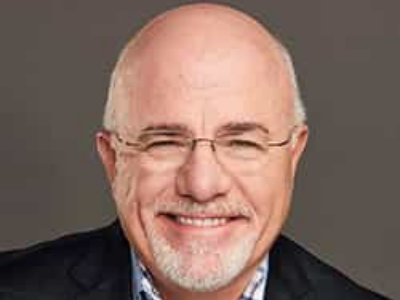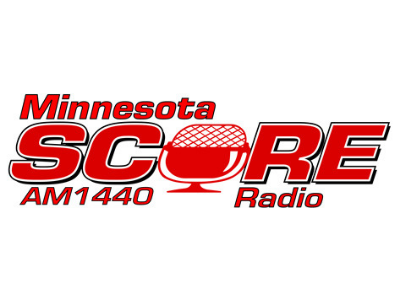James Comey’s indictment is a trademark tactic of authoritarians
News > Politics & Government News

Audio By Carbonatix
11:29 AM on Wednesday, October 8
By Cassandra Burke Robertson
(The Conversation is an independent and nonprofit source of news, analysis and commentary from academic experts.)
Cassandra Burke Robertson, Case Western Reserve University
(THE CONVERSATION) Former FBI Director James Comey was indicted by a federal grand jury on Sept. 25, 2025 – only the second time in history an FBI director has faced criminal charges.
The indictment came just five days after President Donald Trump took to social media to demand that Comey be prosecuted, and three days after Trump installed a former aide as the prosecutor to bring the case.
Legal experts across the political spectrum describe this as an unprecedented political prosecution that breaks fundamental democratic norms and mirrors tactics used by authoritarian leaders worldwide.
As a professor of law, I think Comey’s indictment is momentous because it tests a principle that has protected American democracy for 50 years: Presidents should not direct prosecutors to charge their political enemies.
When leaders can abuse the justice system to target critics and investigators, the rule of law collapses.
An unconstitutional indictment
The evidence of political interference in Comey’s indictment is unusually strong. Trump waged an eight-year vendetta against Comey after the FBI investigated Russian interference in the 2016 presidential election.
On Sept. 20, Trump posted on Truth Social demanding prosecution: “What about Comey, Adam ‘Shifty’ Schiff, Leticia??? They’re all guilty as hell… We can’t delay any longer… JUSTICE MUST BE SERVED, NOW!!!”
After the indictment, Trump called Comey “one of the worst human beings this country has ever been exposed to.”
The Fifth Amendment protects against vindictive and selective prosecution. To prove vindictive prosecution, a defendant must show through objective evidence that the prosecutor acted with “genuine animus” and that the defendant would not have been prosecuted except for that hostility.
As the U.S. Court of Appeals for the 4th Circuit explained in United States v. Wilson in 2001, the government cannot prosecute someone to punish them “for doing what the law plainly allows him to do.” When circumstances create a realistic likelihood of vindictiveness, the burden shifts to the government to justify its conduct.
After Comey’s indictment, Jordan Rubin, a former prosecutor in the Manhattan D.A.’s office, stated: “If the Trump administration’s prosecution of James Comey isn’t ‘selective’ and ‘vindictive,’ then those words have lost all meaning.”
Additionally, three former White House ethics counsels – Norman Eisen, Richard Painter and Virginia Canter – wrote to Congress after Comey’s indictment, saying that in the U.S. “a president should never order prosecutions of his enemies. That happens in Putin’s Russia, and it has happened in other dictatorships, but not here. Until now.”
They concluded: “If the Trump administration can do this, then no American is safe from political prosecution.”
Broken judicial norms
For 50 years since the Watergate scandal that exposed President Richard Nixon’s abuses of power, American presidents have followed a core principle: They must not interfere in decisions about who gets investigated or charged, especially not for political reasons.
The Justice Department’s manual includes the post-Watergate requirement that legal judgments must be “impartial and insulated from political influence.”
The three former ethics counsels emphasized that during their service, they “never once saw” Presidents George W. Bush, Barack Obama or Bill Clinton “suggest that the Department of Justice should prosecute a specific person, much less a political adversary.”
Comey was indicted on two counts – one count of making a false statement to Congress and one count of obstruction of a congressional proceeding, both in connection with his testimony before a Senate committee in September 2020.
The allegations against Comey were reviewed multiple times. Special counsel John Durham examined them during Trump’s first term. Prosecutors with the U.S. attorney’s office in Washington, D.C., during the Biden administration called Comey to testify before a grand jury about allegedly using his friend Daniel Richman as a conduit to leak information to the press. And career prosecutors in 2025 under former U.S. Attorney Erik Siebert also reviewed the allegations. Everyone declined to charge Comey.
The procedural breakdown reveals how fundamentally this case violates norms.
Career prosecutors wrote a memo in September 2025 stating they could not establish probable cause to charge Comey. When Siebert refused to proceed, Trump removed him and installed Lindsey Halligan, Trump’s former personal defense attorney. She has no prosecutorial experience.
Three days later, Halligan brought the indictment. She signed it alone – no career prosecutors put their names on it, as is usually done. The grand jury rejected one of the three charges prosecutors tried to bring, a rare signal of weak evidence.
Comey’s son-in-law, Troy A. Edwards Jr., a federal prosecutor in the same office where Halligan now works, resigned immediately, stating he was leaving “to uphold my oath to the Constitution.”
Comey was arraigned on Oct. 8 and pleaded not guilty.
Echoes of authoritarians
Prosecuting former law enforcement officials who investigated the country’s leader is not typical of democracies. It is a hallmark tactic of authoritarian rulers seeking to consolidate power.
In Turkey, President Recep Tayyip Erdogan arrested his main political rival in March 2025 on corruption charges that critics call politically motivated. Between 2014 and 2020, Erdogan investigated 160,000 Turks for insulting the president and prosecuted 45,000 of them, including a 14-year-old boy. More than 1,400 people were arrested and detained in nationwide protests.
Russia under Vladimir Putin provides the starkest example. Opposition leader Alexei Navalny was poisoned by security services, imprisoned on politically motivated charges and ultimately died in prison in 2024. Even the lawyers who defended Navalny faced criminal prosecution.
In Venezuela, President Nicolás Maduro has systematically arrested opposition leaders and forced critics into exile. Maduro inherited a stacked Supreme Court from his predecessor, Hugo Chávez, that has systematically nullified opposition legislation. The court has also orchestrated takeovers of opposition parties and certified Maduro’s fraudulent 2024 election claim despite opposition evidence showing it won by a 2-to-1 margin.
And Hungary’s Viktor Orban created the Sovereignty Protection Office with powers to investigate any organization or person it suspects of receiving foreign support to influence public life or the democratic process. Orban also installed a loyalist chief prosecutor under whose office “numerous high-profile allegations of corruption have been either quietly shelved or investigated perfunctorily before being dropped,” according to EU Today.
The pattern is clear: When leaders can use the justice system to protect themselves, whether by prosecuting investigators, refusing to investigate corruption or intimidating the judiciary, democratic institutions erode and the rule of law becomes a tool of political control rather than a constraint on power.
What this means for America
Legal experts predict Comey will be acquitted – the evidence is weak and the political interference is blatant.
But as a scholar of legal ethics, I believe the damage is already done.
Trump has shown he can force prosecutors to charge his enemies. Future government officials now face an impossible choice: investigate powerful people, as Comey did, and risk prosecution, or decline to investigate and allow corruption to flourish.
Yet there may be a silver lining: When governments break norms this brazenly, they often create legal vulnerabilities.
Legal commentator Ed Whelan has pointed out that Halligan’s appointment may violate a 1986 Office of Legal Counsel memo authored by then-Deputy Assistant Attorney General Samuel Alito, which concluded that only one interim U.S. attorney appointment is permitted under the statute. Former interim U.S. Attorney Erik Siebert had already served that term. If Halligan wasn’t validly appointed, the indictment may be legally void.
The precedent this case sets affects every American. As the former ethics counsels wrote after Comey’s indictment: “No American should have to go through the experience of being prosecuted under these circumstances, and the rest of us should not have to live in fear that it may also happen to us.”
This article is republished from The Conversation under a Creative Commons license. Read the original article here: https://theconversation.com/james-comeys-indictment-is-a-trademark-tactic-of-authoritarians-266214.





